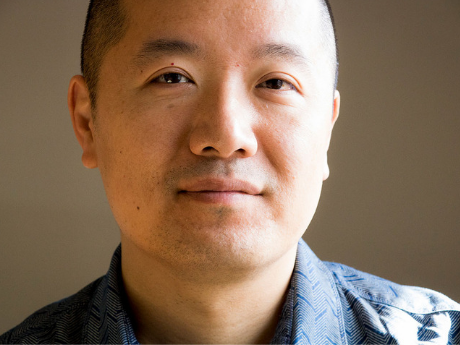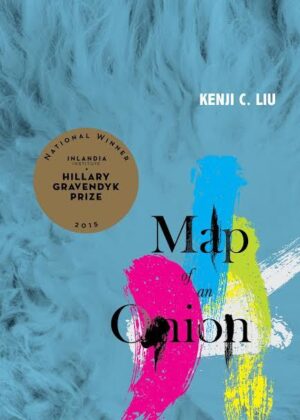In Their Own Words
Kenji C. Liu on “So that you are always sir, dear sir”

So that you are always sir, dear sir
for the Ayotzinapa 43 and all disappeared
I.
Ask me again why I am here
with this pine, this wild oyamel,
their great succulence of reason
You, machine lyric
and State, every state,
maker of rules and so outside them
You, hard blue evenings
with mass emergencies buried
inside them, like me
Your answers endlessly insufficient—
the mayor and his wife, smiling,
waving pinkies, waving dollar bills
Sweet water pouring
into the mind of a cardboard box
The verification of empty
II.
Dear sir, the angle of civilization
the angle of your civilization is too steep
I am speaking certain words and not others
Light rises along my spine
This mountain is a white bone
This republic, a one-note instrument
The president—like a president—deciding
is this one as human?
A forest of marigolds between our knees
"Mexicanos, ¿Cuándo piensas arder?
¿Cuando el desaparecido salga de tu casa?"
Our altars coated with sugar
no place outside the economy of war
When the pan is all gone we will take leave
a parade of ripples with a snake's purpose
This last remittance will cover the cost
if not I will send more, tied to an eagle
The earth is filled with exceptions—
43, a number, so many numbers
I feel around my dark hold
in search of light switch and decomposition
"Ayotzinapa vive
el estado ha muerto"
Bring back the fire
In the bow of our ship, an entrance
a bullet
All rights reserved. Reprinted with the permission of the author.
On "So that you are always sir, dear sir"
This poem was originally published as part of Split This Rock's poem of week. It was also translated into Spanish ("Para que siempre sea el señor, estimado señor") and distributed on risographed #MexicoNoEstaSolo broadsides (a project of Daniel Gonzalez and La Casa del Hijo del Ahuizote) during protests for the Ayotzinapa 43 in Mexico City. My collection, Map of an Onion, contains both versions (translated into Spanish by Diego Flores Magón and Jen Hofer).
The 2014 mass kidnapping and murder of 43 teachers' college students in Ayotzinapa, Mexico brought renewed international attention to the ongoing precariousness of life under the country's dirty war, its "narco-politics." Sadly, many of us in the United States usually know very little about what's happening in other countries, even though our tax dollars are often directly connected. Money, the quiet fascia of state violences. How easy it can be to be gently seduced by USAmerican comfort and privilege.
The Ayotzinapa 43 were disappeared as Black Lives Matter rebellions raged throughout the US in the names of black transgendered people, women, and men. The mythology that the State is a protector of rights for all was on particularly thin ground for more people than usual.
My craft question for this poem was: how to convey the carnivalesque necrosis of state power, its pretence of civilization, the ugliness of its violent logic—"maker of rules and so outside them?" In this I have been assisted by reading many people, notably Derrida, but also Joyelle McSweeney and her idea of the "necropastoral."
A related craft question: how to interconnect my US citizen body to lxs desaparecidxs, via NAFTA, the "war on drugs," militarization of the border—by implicating my own government? The president in this poem could be any president.
For me, the action of this poem is a kind of filling and refilling of a mass grave, one in which many are incriminated, including those of us in the US. At the same time, I hope it begins to point at what Dolores Dorantes might mean when she writes, "No creo, por ejemplo que las metralletas existan. Están ahí, sí. Pero no existen." (I don't believe, for example, that machine guns exist. They're there, sure. But they don't exist.) The state is dead, but poetry can help us imagine into the not-yet-become.



